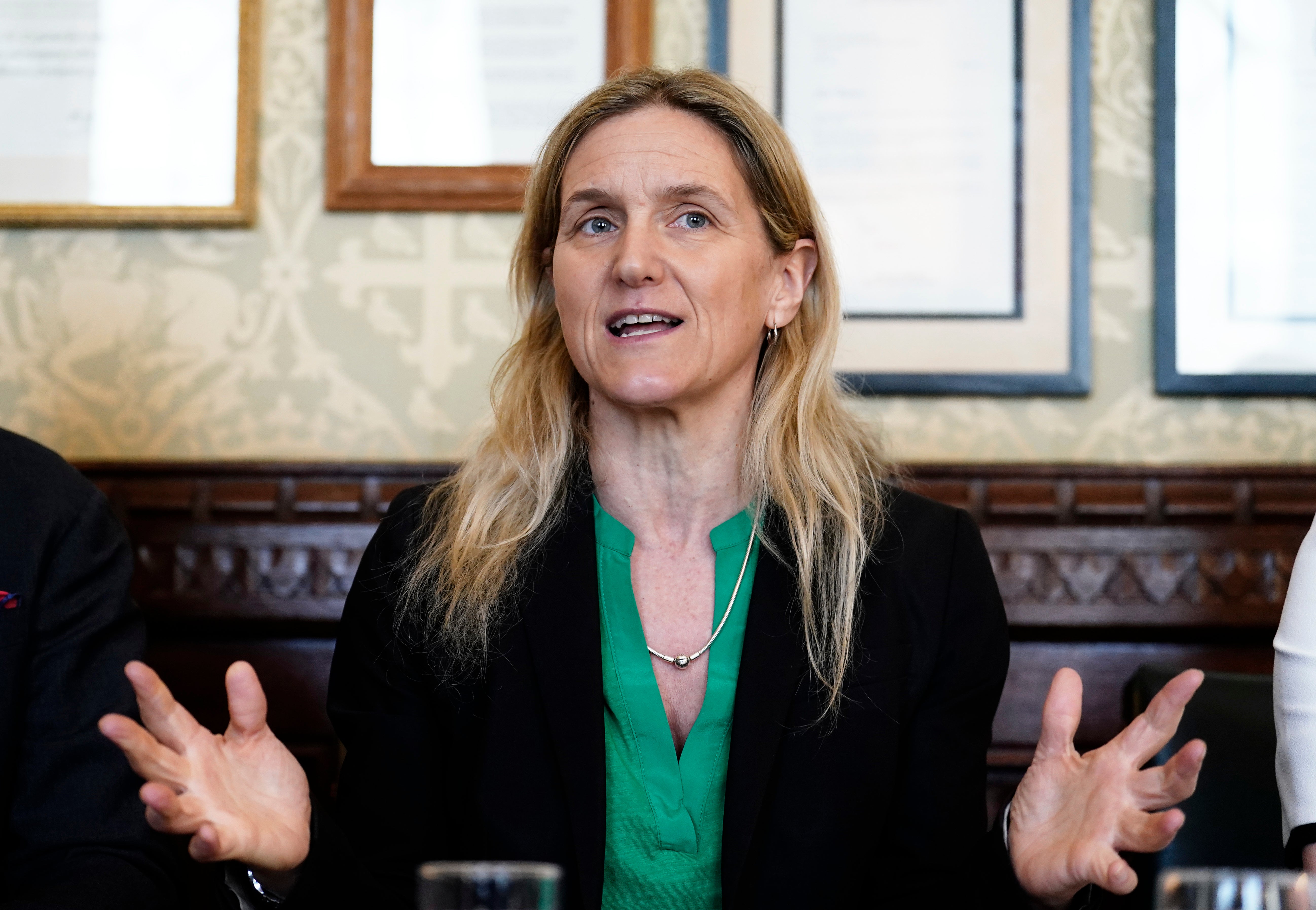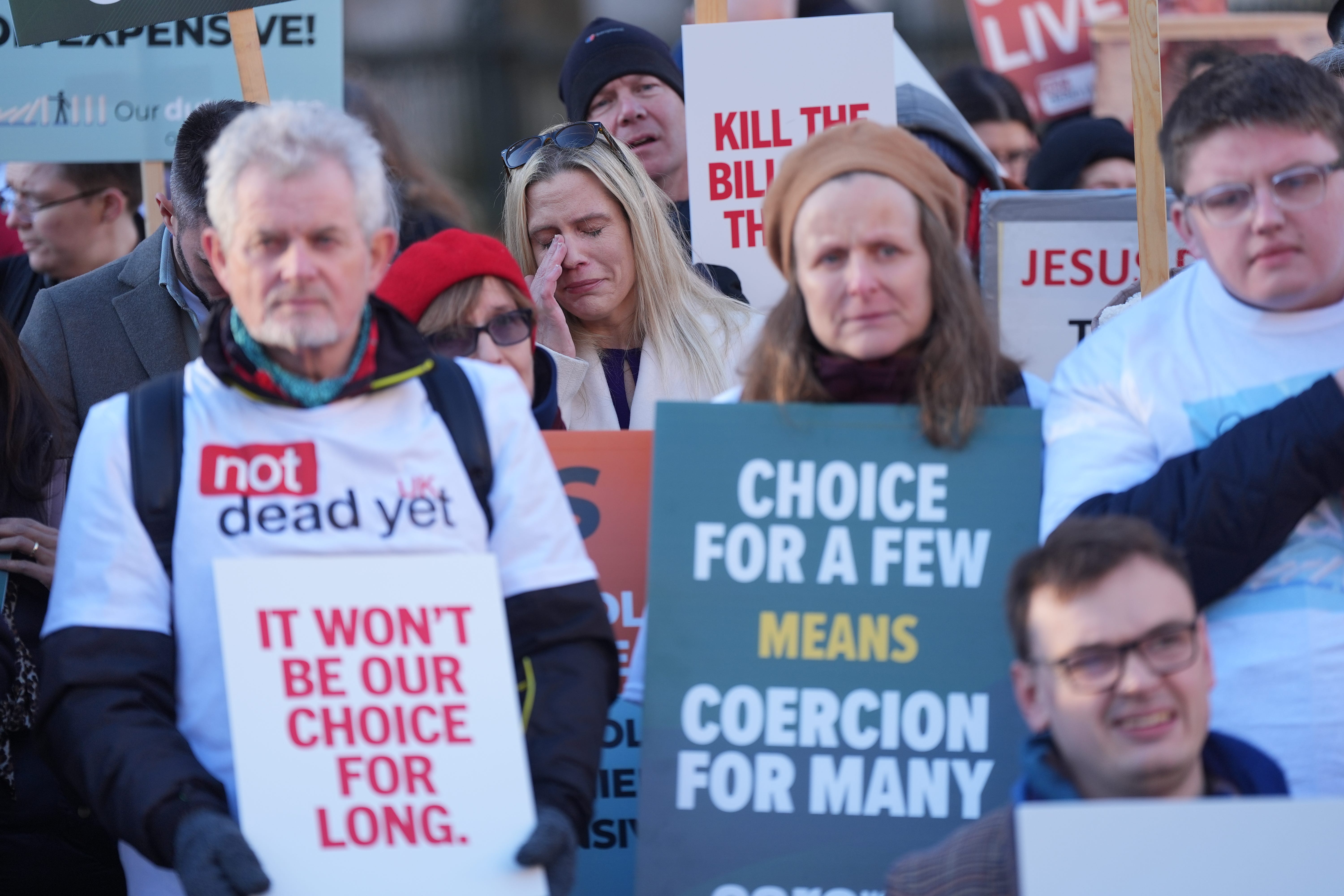A top lawyer has claimed that the assisted dying bill breaches the European Convention on Human Rights (ECHR), because of inadequate safeguards for people with disabilities.
Tom Cross KC’s review of the legislation comes as the government is expected to publish the impact assessment of the bill, which is due to have its final stages debated in the Commons on 16 May.
Mr Cross, who is one of the counsel for the Equality and Human Rights Commission, and fellow barrister Ruth Kennedy have warned that the bill breaches Article 14 of the ECHR - the provision that everyone’s rights are protected equally - and would unfairly discriminate people with conditions such as autism, bipolar disorder and depression.

However, allies of Kim Leadbeater, who brought forward the bill, have dismissed the claims, pointing out that the legislation has been carefully looked at by government lawyers.
A source close to Ms Leadbeater told The Independent: “They’re wrong. I can’t share government legal advice but it goes without saying that lawyers have examined the bill in minute detail and would have flagged any possible ECHR issues.”
The legal advice was commissioned by The Christian Institute, one of a number of charities and campaign groups looking at potentially going to the courts to prevent the bill coming into law if it is passed by Parliament.
It follows a testy committee stage in the House of Commons where scores of amendments put in by MPs opposed to the bill to add further safeguards were rejected.
Ms Leadbeater has pointed out that she accepted 32 of the 393 amendments from MPs who were opposed to the Bill.
But the row saw another Labour MP Naz Shah, who had originally intended to support the bill, warn that it is “fundamentally flawed”.
The main debate appears to focus on whether some people with conditions and disabilities are more vulnerable to coercion to end their lives.
In a detailed legal opinion, Mr Cross and Ms Kennedy say: “Persons with disabilities of the above sort are in a significantly different situation from persons who do not have such disabilities, because they are - all else being equal - more likely to express the clear and settled wish to die required under the legislation to be eligible to be assisted to die.
“They are on that basis more vulnerable both than persons whose disabilities are not of that sort and than persons who are not disabled at all. Accordingly, they are on well-established principles required to be treated differently under Article 14 [non-discrimination] unless there is justification not to do so. However, without justification, the legislation fails to provide an adequate safeguard to address that greater vulnerability.”

They went on: “In our opinion, this failure to treat these different cases differently in the enjoyment of the right to life is in breach of the ECHR.
“We consider that, on that basis, an application for judicial review in respect of the legislation once enacted could be brought to obtain a Declaration of Incompatibility under the Human Rights Act 1998 (HRA); and a person or body falling within the concept of a ‘victim’ for ECHR purposes could bring a complaint about the legislation in the European Court of Human Rights (ECtHR).”
Simon Calvert, deputy director at The Christian Institute, said the legal advice should make MPs think again about backing the legislation.
In the second reading of the bill, Ms Leadbeater and her supporters won a clear majority of 55 by 330 to 275.
However, up to 140 MPs could change their mind with some saying they voted in favour to extend the debate and others indicating their support was provisional to the original intention that a judge would make the final decision in court on an application to die. This has since been replaced with an expert panel through an amendment brought by Ms Leadbeater.
Mr Calvert said: “It's time that MPs gave up on this dangerous and discriminatory Bill and focused instead on improving healthcare and end-of-life care for everyone. If the many hours wasted on debating assisted suicide had been spent on debating how to improve palliative care, we’d be in a much better position, offering people life and hope instead of death and despair.”







